Book Burnings - A Sampling from History
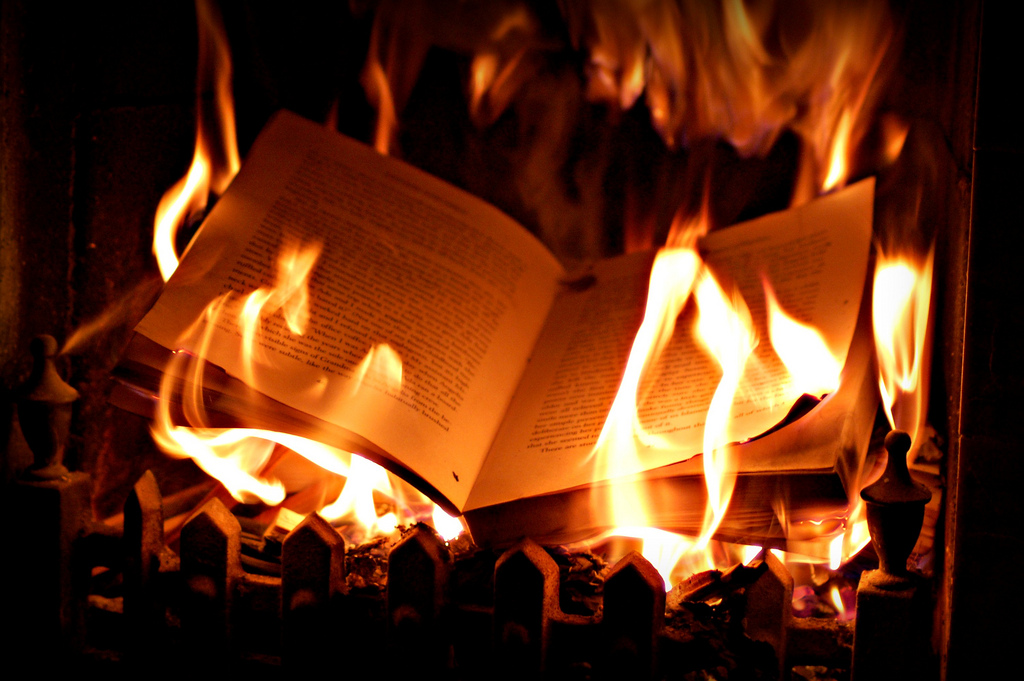
"Where they have burned books, they will end in burning human beings."
— Heinrich Heine, from his play Almansor (1821)
"History has taught you nothing if you think you can kill ideas. Tyrants have tried to do that often before, and the ideas have risen up in their might and destroyed them. You can burn my books and the books of the best minds in Europe, but the ideas in them have seeped through a million channels, and will continue to quicken other minds."
— Helen Keller, upon hearing that the Nazis were burning her books
Jeremiah's prophecies, in Jeremiah 36:23
King Jehoiakim of Judah didn't like the scroll that was dictated to Baruch by the prophet Jeremiah. When it was read to him, he burned it. "As Jehudi read three or four columns, the king[a] would cut them off with a penknife and throw them into the fire in the brazier, until the entire scroll was consumed in the fire that was in the brazier."
Books of history
Emperor Ch’in Shih-huang-ti had just unified China, and he solidified his rule with the order to burn the books of any historian or partisan of the defeated Shih or Shu. Those convicted of protecting books were forced to work on constructing his great new project: The Great Wall. This condemned, as Borges has said, "those who adored the past to a work as vast as the past, as stupid and as useless.
Jewish books of law, in 1 Maccabees 1:56
Antiochus Epiphanes occupied Jerusalem 167 BCE. He commanded his forces to destroy the Temple. Here, "The books of the law that they found they tore to pieces and burned with fire."
The writings of Labenius
Labenius supported the idea of Rome as a republic, against the situation at the time, where Rome was an empire. When his books were burned, Labenius "could not suffer this loss, nor survive these his so dear issue; and therefore caused himself to be conveyed and shut up alive in the monument of his ancestors, where he made shift to kill and bury himself at once" Michel de Montaigne, "Of the Affections of Fathers to their Children," The Essays, Encyclopædia Britannica, 1952, p. 192. Cassius Severus announced that if "they really want to destroy the works of Labenius, they must burn me alive. For I have learned them by heart." (Cramer, Frederick J., "Book Burning and Censorship in Ancient Rome," Journal of the History of Ideas, vol. 6, no. 2, April 1945, pp. 157–96.) Severus was almost immediately banished to Crete and his own writings were burned.
Books of spells and magic, in Acts 19:18-19
In Ephesus, Paul's preaching had dramatic effects: "Also many of those who became believers confessed and disclosed their practices. A number of those who practiced magic collected their books and burned them publicly; when the value of these books[a] was calculated, it was found to come to fifty thousand silver coins."
Manichaean and Christian scriptures
The Roman Emperor Diocletian tried to suppress both Manicheans and Christians by ordering both groups burned alive with their scriptures.
Books of Arianism
After the first Council of Nicaea, the theological writings of Arius and his followers were burned for heresy by the Roman emperors Constantine, Honorius, and Theodosius I, who published a decree commanding that, "the doctrine of the Trinity should be embraced by those who would be called catholics; that all others should bear the infamous name of heretics."
Qur'anic texts with variant wording
Uthman ibn 'Affan, the third Caliph of Islam after Muhammad, oversaw the collection of the verses of the Qur'an. When it was completed, he ordered the destruction of any other remaining text containing verses of the Qur'an. Sometime between 650 and 656, a committee appointed by Uthman is believed to have produced a singular version of the Qur'an in seven copies, and Uthman "sent to every Muslim province one copy of what they had copied, and ordered any other Qur'anic materials, whether written in fragmentary manuscripts or whole copies, be burnt."
The writings of Peter Abelard
The provincial synod held at Soissons (in France) in 1121 condemned the teachings of the famous theologian Peter Abelard as heresy; he was forced to burn his own book before being shut up inside the convent of St. Medard at Soissons.
Shi'ite Islamic writings at Al-Azhar Madrassah
When Saladin converted from Ismaili Shiism to Sunni Islam, he had all Shi'ite books in this library — between 120,000 and 2,000,000 of them — burned.
Nalanda University
The library of Nalanda, known as Dharma Gunj (the Mountain of Truth) or Dharmagañja (the Treasury of Truth), was the most renowned repository of Hindu and Buddhist knowledge in the world at the time. It was said to hold hundreds of thousands of volumes, a collection so large that it burned for months when Muslim invaders burned it down.
The Talmud
Louis IX put The Talmud (the central text of Rabbinic Judaism and the primary source of Jewish religious law and Jewish theology) on trial in Paris for being harmful to Christian society. The book was found guilty, and all the copies in Paris that could be found — 24 cartloads of scrolls — were burned.
Histories of the peoples conquered by the Aztecs
The fourth Aztec Tlatoani, Itzcoatl, ordered the burning of all historical codices because it was "not wise that all the people should know the paintings." Among other purposes, this allowed the Aztec state to develop a state-sanctioned history and mythos that venerated the Aztec god Huitzilopochtli.
Thousands of manuscripts and books
Savonarola, a Florentine religious fanatic with a large following, was one of the most notorious and powerful of all censors. In these years, he instigated great “bonfires of the vanities” which destroyed books and paintings by some of the greatest artists of Florence. He persuaded the artists themselves to bring their works—including drawings of nudes—to the bonfires. Some poets decided they should no longer write in verse because they were persuaded that their lines were wicked and impure. Popular songs were denounced, and some were turned into hymns with new pious lyrics. Ironically, in 1498 Savonarola himself was hung from a cross and burned, along with all his writings, sermons, essays, and pamphlets.
The works of Martin Luther, including his German translation of the Bible
Exsurge Domine (Condemning the Errors of Martin Luther), a papal bull issued by Pope Leo X, urged "Indeed immediately after the publication of this letter these works, wherever they may be, shall be sought out carefully by the ordinaries and others [ecclesiastics and regulars], and under each and every one of the above penalties shall be burned publicly and solemnly in the presence of the clerics and people."
Roman Catholic theological works
Martin Luther ordered a public burning of books to be held in the public square outside Wittenberg's Elster Gate on December 10, 1520. Together with the Papal Bull of Excommunication Exsurge Domine, which was issued against Luther himself, Luther burned works he considered to be symbols of Christian orthodoxy, including the Code of Canon Law, the Summa Theologica of St. Thomas Aquinas and the Summa Angelica, Angelo Carletti's work on Scotist theology.
6,000 copies of Tyndale's English translation of the Bible
Six thousand copies of William Tyndale’s English translation of the New Testament were printed in Cologne, Germany, and smuggled into England. There they were burned by the Church of England. Church authorities were determined that the Bible would be available only in Latin.
English Monastic Libraries
During the Dissolution of the Monasteries in England, ordered by Henry VIII and his minister Thomas Cromwell, many monastic libraries were destroyed. This is generally considered to be the greatest cultural loss caused by the English Reformation. Thousands of books were destroyed, while a few were ripped apart for their precious bindings and others sold off by the cartload. Many of the earliest Anglo-Saxon manuscripts were lost at this time.
The Meritorious Price of Our Redemption, by William Pynchon
This is the first book burned in America. It refuted the Puritan doctrine of atonement, and was condemned by the Massachusetts General Court who ruled that all copies should be burned in the center of the marketplace in Boston.
The writings of John Milton and Thomas Hobbes
Several books by Milton (the English poet, who wrote Paradise Lost, among others) and Thomas Hobbes (the English philosopher who wrote Leviathan), and works by other authors were burnt at Oxford University. In a decree issued by the Convocation of the University of Oxford, the University considered these authors and others "destructive of the kingly government." The Decree barred "all members of the University from the reading of the said Books," and required that the books be burnt in the Quadrangle of what is now the central Bodleian Library.
Lettres Philosophique, by Voltaire
Voltaire's works were burnt several times in pre-revolutionary France. In his Lettres Philosophique, published in Rouen in 1734, he described British attitudes toward government, literature, and religion, and clearly implied that the British constitutional monarchy was better than the French absolute one – which led French authorities to order the book burned.
Many books written in Braille
Pierre-Armand Dufau, director of the Institute for Blind Youth, burned 73 books written in Braille because he supported another method of writing for the blind.
Library of St. Augustine Academy, Philadelphia
Nativist rioters (anti-immigration Americans) burned down St. Augustine Church and St. Augustine Academy, with many of the rare books in its library. The books themselves weren't targeted; the rioters wanted to destroy anything belinging to Irish immigrants.
Libraries in Confederate cities
During the American Civil War Union campaign known as Sherman's March to the Sea, whole Confederate cities such as Atlanta and Columbia were burned down. Though books were not specifically targeted, the fires set there destroyed various private and public libraries.
15 tons of books, printing plates, and photographs
The New York Society for the Suppression of Vice was founded by Anthony Cornstock and existed within the YMCA of New York. Its task was to supervise public morality. Book burning was on its seal, and, according to the Library of Congress, "it became prominent as a monitor and censor of literary works and popular literature." It inspired the passing of The Cornstock Act, a Federal Law that made it illegal to own, sell, or send obscene material through the mail.

Dubliners, by James Joyce
Falconer's Printing printed the first edition of this collection of short stories in 1910. In 1912 they claimed that they had only recently discovered "what kind of book it was." They refused to print it or to return it to Joyce, and burned all 1,000 copies of their run.
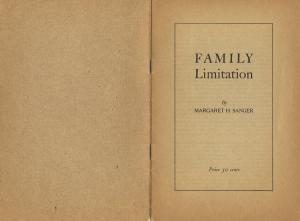
Margaret Sanger's Family Limitation
Guy Aldred and Rose Witcop published together a British edition of Margaret Sanger's Family Limitation, a pioneering work on birth control. Despite expert testimony from a consultant to Guy's Hospital and evidence that the book had only been sold to those aged over twenty-one, the court ordered the entire stock to be destroyed.
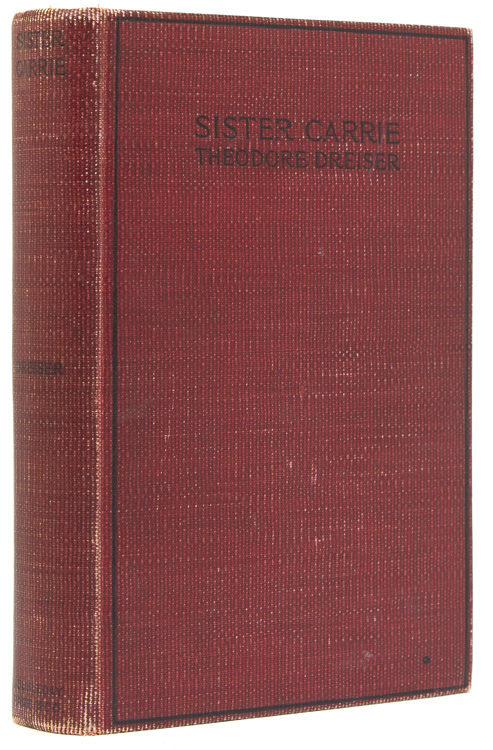
Theodore Dreiser's works
Government officials of Warsaw, Indiana, where author Theodore Dreiser (An American Tragedy, Sister Carrie) was born and attended high school, demanded that all library copies of Dreiser’s books be burned.

16 million books in Polish libraries
By the end of WWII, fourteen libraries in Warsaw, and all the books in them, had been burned to the ground. The Germans were especially efficient at this because they had special troops called Verbrennungskommandos (Burning detachments) whose only job was to destroy buildings and what was inside them. By the end of the war, Poland had lost an estimated 16 million books and manuscripts.
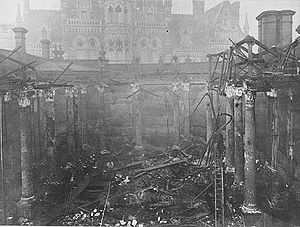
Books in German libraries
The firebombing of German cities by Allied forces during World War II caused extensive destruction to German libraries, including the destruction of approximately 20,000,000 books.
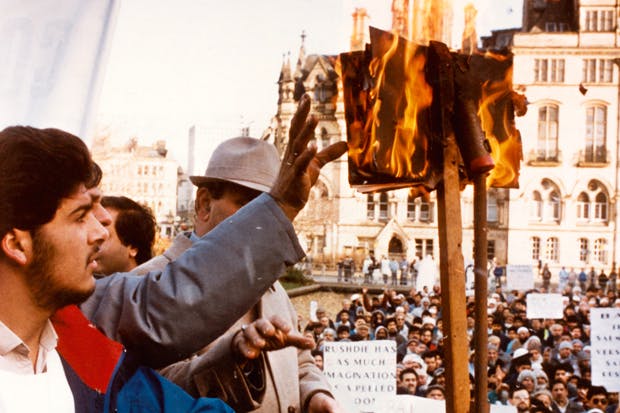
The Satanic Verses
Many Muslims accused Salman Rushdie of blasphemy or unbelief for his book, which was partially based on the life of Mohammed. In 1989 the Ayatollah Khomeini of Iran issued a fatwa ordering Muslims to kill Rushdie. Numerous killings, attempted killings, and bombings resulted in response to the novel.

"Subversive" books
In 1976, "a great book-burning... was shown on television" in Argentina. At the same time, Chile's government endorsed widespread book burning, including books by Gabriel Garcia Marquez. Libraries in Uruguay were being "purified" at this time, and military governments in El Salvador in the 1970s and 1980s also burned books they considered subversive.

The Jaffna Public Library of Sri Lanka
This library housed 97,000 rare books and manuscripts of Tamil history and literature. It was the minority Tamil Hindu's primary cultural institution. Rampaging Sinhalese Buddhist mobs burned it to the ground.
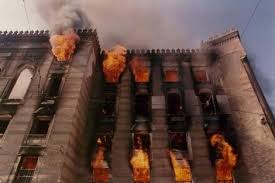
The Oriental Institute, and the National and University Library in Sarajevo
Serbian forces burned down the Oriental Institute in Sarajevo in May, destroying more than five thousand manuscripts dating back to medieval times, recording the history of Bosnia. In August, they attacked the National and University Library in Sarajevo and destroyed it, burning 1.2 million books.
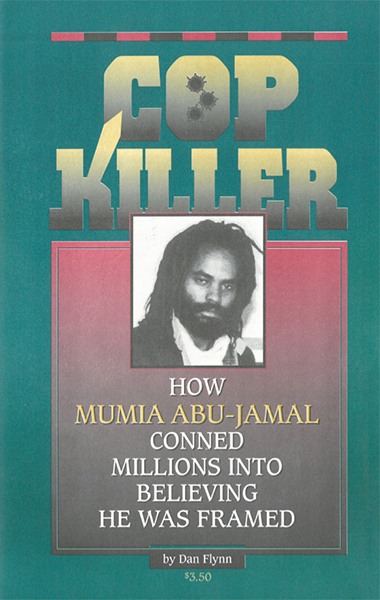
Cop Killer
Accuracy in Academia's Dan Flynn spoke at the University of California-Berkeley to promote his book, Cop Killer: How Mumia-Abu Jamal Conned Millions Into Believing He Was Framed. Protesters first shouted down Flynn with obscenities to prevent him from speaking, then seized copies of his books and burned them outside the building Flynn was supposed to speak in.

6,000 volumes of ancient poetry
The Egyptian Ministry of Culture burned 6,000 volumes of poetry by the 8th-century writer Abu Nuwas for their homoerotic content.

The Harry Potter books
Groups of people in New Mexico, Michigan, and Pennsylvania burned Harry Potter books for their "satanic" content.

The DaVinci Code
Dan Brown's popular novel, The Da Vinci Code, was burned in Italy for blasphemous content.
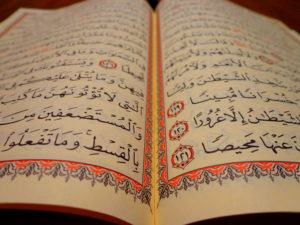
The Qur'an
Christian fundamentalist pastor Terry Jones caused an international stir by promising to burn the Qur'an on the anniversary of 9/11. The resulting upheavals around the world saw more than 20 people killed and pleas from leaders across the political spectrum not to proceed. Jones never went through with his public burning, but in 2011 he burned copies of the Qur'an in his church's sanctuary.
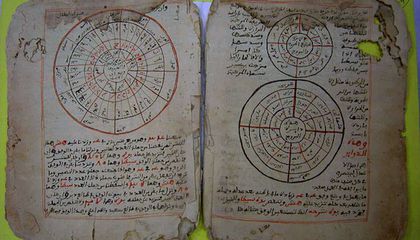
Thousands of manuscripts of the medieval history of Sub-Saharan Africa
Islamist insurgents in Mali burned two archives of manuscripts dating back to the 1200s. These documents, almost none of which had been digitized or recorded in any other way, covered the medieval history of Sub-Saharan Africa. Many of the books had never been translated and their information is lost forever.

A book of religious history
University of Chicago historian Wendy Doniger's book, The Hindus, was short-listed for the National Book Critics Circle’s non-fiction award in 2009. In 2011 a Hindu nationalist group in India began to protest the book, saying that it belittled their religion. In 2014 Penguin India, the publisher of the book, burned all of its remaining copies.
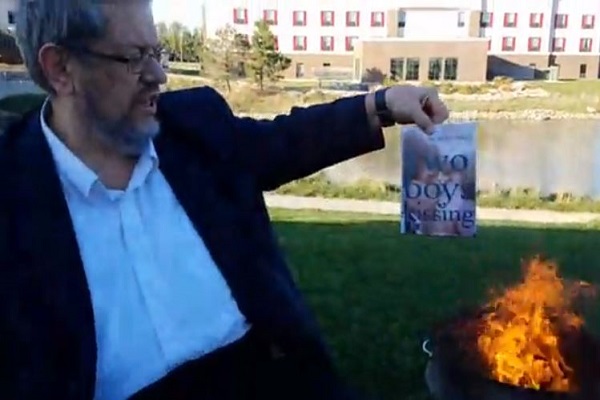
LGBTQ books
Paul Dorr, a northwest Iowa religious activist, released a Facebook Live video in which he burned LGBTQ books that he borrowed from the Orange City Public Library. He said he was protesting a Lesbian, Gay, Bisexual, Transgender, Questioning celebration in Orange City, the introduction of sexual education into the public schools and some local churches' reluctance to denounce homosexuality.

Jennine Capó Crucet's Make Your Home Among Strangers
After Crucet's speech to first-year students at Georgia Southern University, several students burned her 2015 novel, Make Your Home Among Strangers.